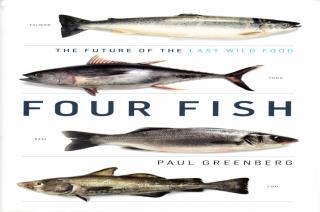The commercial striped bass season ended last Monday and Alec Gale of West Tisbury said it was the worst season he has seen in the six years he has been hauling fish to the mainland for the local anglers. “It was a slow season, and it wasn’t because of overfishing,” Mr. Gale said. “I think it was a lack of bait and the warm water temperature.”
Fishing
2010
Fluke, Bass Season Ends
Striped bass and fluke are a prime item this weekend in fish markets and in restaurants. And that will be it for the season. Due to the fact that state quotas have been met, the commercial striped bass season will close on Monday, August 23, and the commercial fluke season will close on Wednesday, August 25. The state estimates the 1.12 million-pound quota for striped bass and 846,667-pound quota for fluke have been met. Fish markets will likely have fish for a few days after the fishery closes.
Blue crab is a Vineyard seafood delicacy. For many years, the idea of eating blue crab here was kept quiet among those who knew where to find them. They were the Vineyard’s secret seafood.
But increasing awareness of the health of the Island’s great ponds has moved the topic above a whisper; the only secret now is where.
FOUR FISH: The Future of the Last Wild Food. By Paul Greenberg. Penguin Press, New York, N.Y. July 2010. 304 pages. $25.95, hardcover.
The title is too narrow. Don’t think for a moment this is a book only about salmon, cod, bass and tuna. The book goes beyond the history and plight of four fish, to our hunger for fresh fish of all kinds. For anyone who wonders where the swordfish went, how we emerged from the collapse of the whale fishery, or simply which fish is safe to order at the restaurant, Four Fish offers much.
It should be bonito season. The water is warm, well into the 70s. There are plenty of sand eels swimming near the shoreline and there are plenty of terns overhead feeding. The bonito should be here. But they mostly aren’t.
In 1978 all the fish I cared about died. They were the biggest largemouth bass I had ever seen, and they lived in a pond ten minutes’ walk from my house on a large estate in the backwoods of Greenwich, Connecticut, perhaps the most famously wealthy town in America. We did not own the house, the estate, the pond, or the largemouth bass, but I still thought of the fish as my fish. I had found them, and the pond was my rightful hunting ground.



